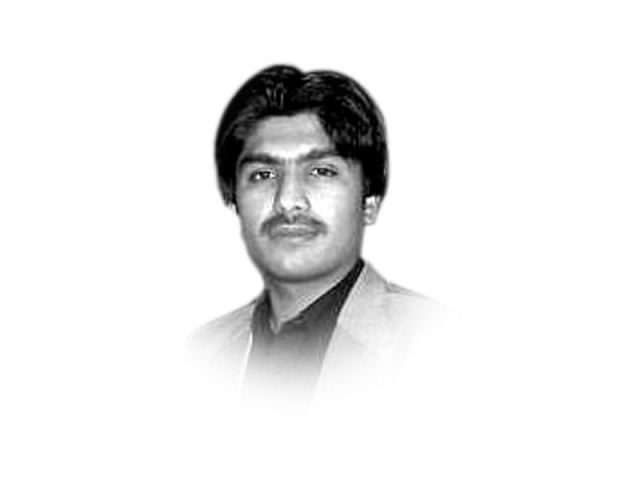The fruits of democracy
After two to three peaceful political dispensations, people will start reaping the benefits of democracy

The writer is a public policy analyst and works with Sustainable Development Policy Institute. He tweets at @taimur__
I won't go into the reasons behind the abortive military coup and won’t explore Erdogan's controversial ruling style. But we need to ask the question: why did the Turkish people take to the streets in the middle of the night on a single call of their elected president to defend democracy? Irrespective of differences over his ruling style and some serious allegations by his opponents, the fact remains that Erdogan is still the most popular, influential and charismatic leader in Turkey. How did he achieve this positon?
Since the 1960s, Turkey has witnessed four military coups, long-term political instability, economic downturn, rising poverty, and violent clashes between left and right wing groups, which claimed thousands of lives.
Remaining in power for over two decades, first as mayor of Istanbul in 1994, then as Turkey’s prime minister from 2003 and since August 2014 as its president, Erdogan has proved his worth through his governance. During his two decades in public service, Turkey has become a regional economic powerhouse, poverty has been overcome significantly, the share of the middle class in the national pie has doubled, an improved public infrastructure has placed Turkey as the sixth most popular tourist destination in the world, and an increasingly important global hub for energy, trade and transport. According to The Economist, the gap between Turkey and its fellow members of the Organisation for Economic Co-operation and Development, a club of mostly rich countries, has shrunk markedly. These are the major contributing factors for Erdogan’s popularity. The Turkish people have never witnessed such a robust economic transformation before and are fully aware of the fruits of sustained democracy. Owing to visible progress on the ground, the Turkish people refused to accept an attempt to sabotage democracy and hence, took to the streets on that fateful night.
After this abortive military coup in Turkey, a debate raged in Pakistan over what would the reaction of Pakistanis be if democracy in the country was ever under threat. This is a difficult question to answer and at best we can only answer with a 'don't know'. However, given the state of governance in Turkey as narrated above, the situation in Pakistan in comparison is not that satisfactory. There is serious tension between the ruling PML-N and the opposition over the Panama affair. Public service delivery is in a poor state. There is a rise in disparities, with 38.8 per cent of Pakistanis still living in multidimensional poverty (which takes into account indicators pertaining to health, education and living standards), unemployment is also on the rise, more than 24 million children are out of school, the energy crisis is yet to be resolved, and except for China, our relations with our neighbours are getting worse by the day. These facts show the dismal performance of the government on all fronts. In such a scenario, it won't be a surprise if people start losing their trust in politicians and the system. However, despite the shortcomings in governance, the Nawaz government has a few success stories to its name too. There has been some improvement in the law and order situation in the country, terrorism is not as rampant as it was before Operation Zarb-e-Azb, and some economic indicators paint a positive picture of the economy owing to increase in trust of investors in the Pakistan Stock Exchange.
Based on the above facts, it is difficult to predict what the reaction of the Pakistani people will be in case democracy is ever under threat in the country. I would say that the challenge for the government and the political class is to gain the people's trust and win their hearts. Only then will people defend and fight to preserve democracy wholeheartedly and there will be no unconstitutional threats. Failing in gaining people's trust may lead to disastrous consequences. How can the political class achieve the people's trust? For that the government should overcome its shortcomings in governance on a war footing, especially in the health and education sectors. At the same time, we the people should also show patience. We want miracles to happen in an instant, which is not possible. I believe that positive change will come gradually and only through a sustained democratic process. After two to three peaceful political dispensations, without any interruption, people will start reaping the benefits of democracy. Let us give democracy due time to evolve and take root, and things will turn around for the better eventually.
Published in The Express Tribune, August 27th, 2016.
Like Opinion & Editorial on Facebook, follow @ETOpEd on Twitter to receive all updates on all our daily pieces.














COMMENTS
Comments are moderated and generally will be posted if they are on-topic and not abusive.
For more information, please see our Comments FAQ